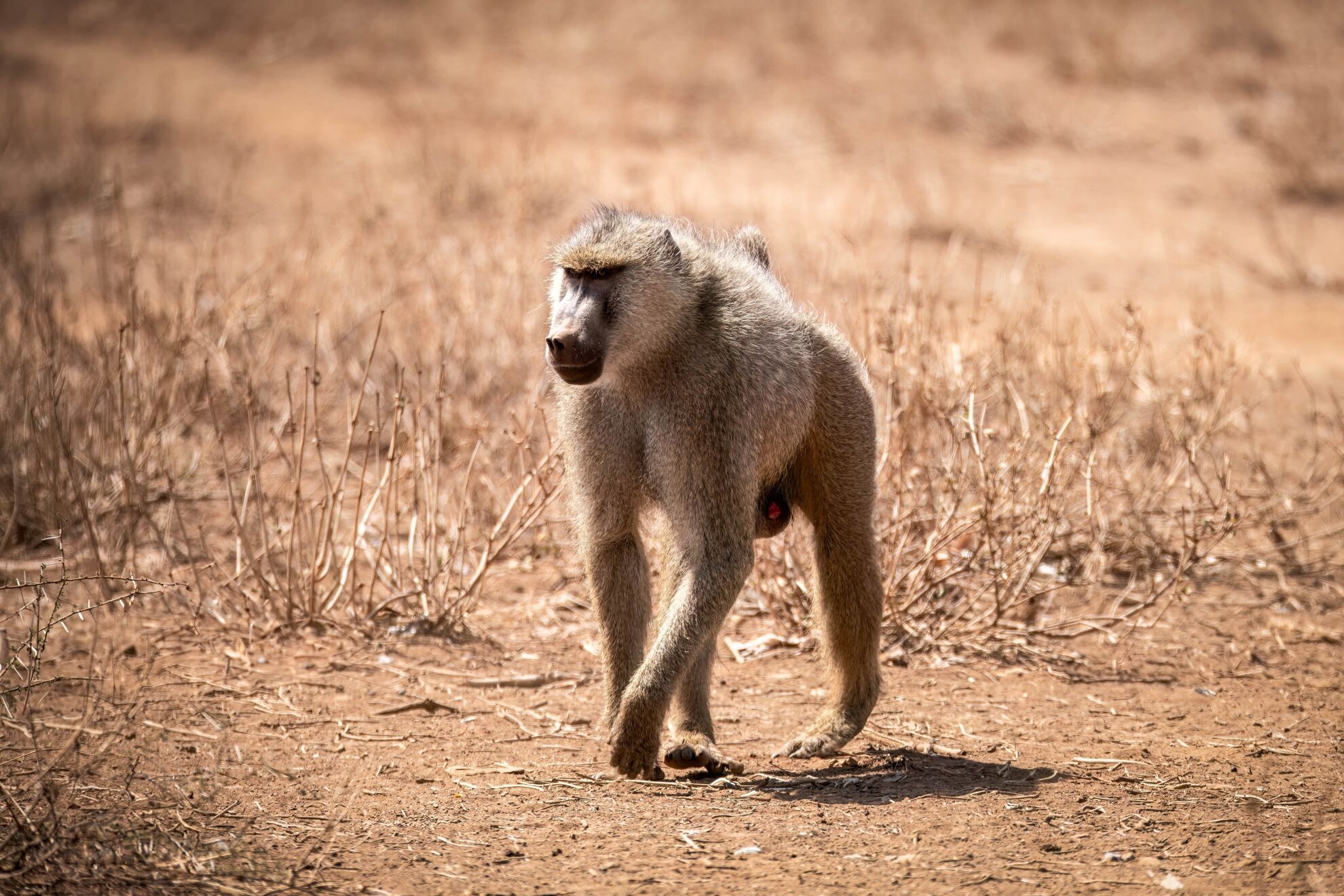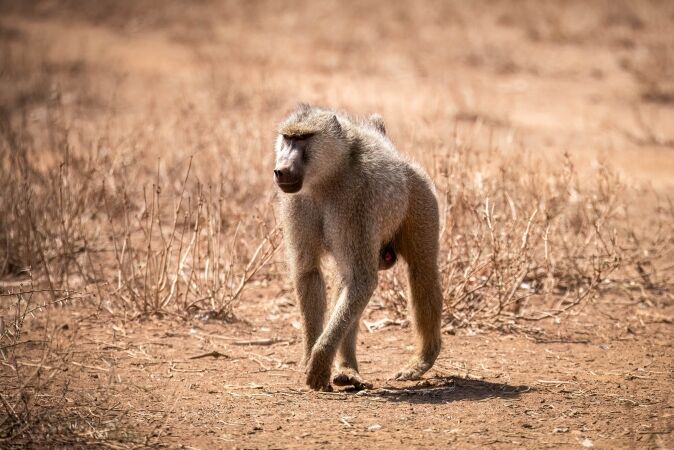

The Yellow baboon (Papio cynocephalus) is a baboon inhabiting Eastern Africa, from southern Ethiopia and Somalia to Tanzania, Malawi, Mozambique, and Zambia. These highly social, very vocal primates live in troops of between 15-100 members and are listed by the IUCN with a status of “least concern.”
There are three subspecies of the yellow baboon:
The yellow baboon prefers a habitat of open and wooded savannas as well as miombo forests. This omnivorous baboon is diurnal and spends most of its day foraging for food, which includes items such as young mammals (hares and small antelope), insects, birds, birds, eggs, leaves, fruits, flowers, birds, birds, seeds, mushrooms, and roots. They also raid crops for food.
Before sunset, they head to their sleeping sites in tall trees or cliffs. These are specifically chosen to assist in keeping predators away. Predators include snakes, such as the black mamba and pythons, large birds of prey, lions, leopards, hyenas, and cheetahs. Man is, of course, another predator due to large-scale urbanization which leads to the loss of habitat for the yellow baboon and causes human-animal conflict. They are also hunted for sport.
The gestation period for these primates is approximately 6 months, with mating occurring throughout the year. Only one infant is usually born and weaned by 12 months.
Name:
Papio cynocephalus
Male Weight:
46-66 pounds
Shoulder height:
27-29 inches
Range:
Eastern Africa
Gestation Period:
6 months
Life span:
12 years
This primate has a dark, narrow, T-shaped face with a large, long doglike-snout and large canines in adults. Their coats are yellow-brown, with a lighter underbelly and silvery fringes on the hands and feet. Males are larger than their female counterparts, weighing up to 66 pounds compared to more slender 26 pounds for females. They tend to walk on all fours and sport a tail that appears to be broken in the way it just hangs from about a quarter way down.
Yellow baboon harvests are often opportunistic while targeting a different species on a game hunting safari, and hunters should be on the lookout for these primates that prefer elevated areas, such as trees and cliffs. They are also targeted using the walk-and-stalk method close to crops or water holes and other water sources that they may frequent.
Yellow baboons are known for their intelligence, making hunting them a challenging game hunting safari. Sentries are posted to keep guard over the troops, and they will sound alarm calls to alert members of any perceived danger. The yellow baboon's preference for cliffs and trees along with their keen eyesight, makes stalking them undetected a real challenge.
For hunters, the reward in a successful yellow baboon African hunt lies in outsmarting this intelligent primate, along with an unusual trophy to add to their collection.
The best rifle is a small to medium caliber rifle fitted, with a good scope. Anything from a .270 to a .375 will work well on this African hunt. Yellow baboon hunting safaris are often opportunistic, and they are targeted over long distances. In that case, a 300 win-mag is also an excellent choice for longer shots when loaded with a minimum of 165 grain.
Search from our range of Hunts across various popular destinations in Africa.
Find A Hunt